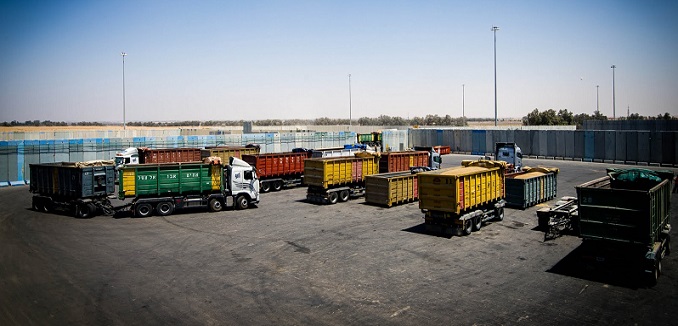Israel has reopened its main border crossings with the Gaza Strip, as part of an Egyptian-brokered ceasefire agreement to restore calm in Israel’s south and to alleviate the suffering of Gaza’s civilian population.
The Erez and Kerem Shalom Crossings were reopened Sunday to allow for the import of goods, several days after the 12-mile fishing zone near Gaza was also restored. “Tomorrow, the Erez and Kerem Shalom Crossings will be opened, according to regular operating hours,” said COGAT, the Israeli Defense Ministry body that liaises with the Palestinians.
In a statement released Saturday, the unit explained the move was aimed at preventing a deterioration of living conditions in Gaza and reflected Israel’s policy to distinguish “between terrorism and uninvolved civilians.”
Israel had closed the main border crossings with Gaza earlier this month in response to the uninterrupted rocket fire from Hamas and Palestinian Islamic Jihad that saw almost 700 rockets fired indiscriminately at Israeli towns and cities.
Four Israelis were killed in some of the heaviest fighting in years. According to the Meir Amit Intelligence and Terrorism Information Center, nearly three-quarters of the Palestinians killed during Israeli retaliatory actions belonged to Palestinian terrorist organizations.
Of the 23 fatalities, eight belonged to Islamic Jihad, two to Hamas, five were Fatah operatives, and one was a member of the Popular Front for the Liberation of Palestine.
On Monday, the head of Qatar’s National Committee for the Reconstruction of the Gaza Strip, Mohammed al-Emadi, passed through the Erez border crossing to oversee the disbursement of $30 million in aid.
The Qatari envoy is set to hold meetings with UN envoy Nickolay Mladenov and Hamas chief Ismail Haniyeh to coordinate the money transfer, which will be assigned to development projects and impoverished Palestinian families.
Qatar’s Foreign Ministry announced last week that the country would allocate $300 million in grants and loans to support the PA’s budget for the health and education sectors. The other $180 million will fund United Nations programs and electricity services in the West Bank and Gaza.
[Photo: The Israel Project / Flickr]




